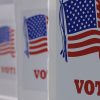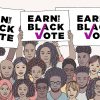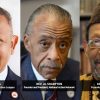
What has made the 21st century so interesting is that, perhaps for the first time in American history, the right people are being studied. Examining “race in America,” now in vogue, used to be called grappling with “The Negro Problem.” Black leadership and luminaries were ignored when they repeatedly said during the last century’s white supremacist flare-ups: it’s white Americans that are beyond due for the collective, public microscope.
We need to ask and answer the following questions: What makes white people the way they are? Why do they respond to every black freedom call with physical and psychic violence, smear tactics and diversionary moves, even when they now know that when black people push, all people ride?
The answers to these questions have filled shelves of books—on American racism, on African-American history, on the nature of “whiteness” itself. The only way to give cogent answers here is to examine the present and the past simultaneously. “All history is current events,” John Henrik Clarke, the Pan-African historian liked to say.
Donald Trump actively courts white nationalists without even bothering to use the coded language of a 1980 Ronald Reagan (Welfare queens), and witnessing Black Lives Matter get labeled a hate group by Fox News, all line up with the historical current of white nationalism.
It always appears when blacks gain ground against white supremacy as America’s economic and social structures drastically change. Here’s the pattern: white socio-economic anxiety translates into oppression based on race, blacks respond against the oppression, white supremacy produces a backlash to the response, and the blacklash produces more black struggle.
Ronald Walters, black America’s pre-eminent political scientist, would have been a great interview for this story, but, alas, he is now an Ancestor. He did, however, leave behind a 2003 book on this exact moment, White Nationalism, Black Interests: Conservative Public Policy and the Black Community. An excerpt that could have been written today:
Now, at the beginning of the twenty-first century, we appear to be living in an era when a dominant sector of the White majority seems to have lost confidence in the promise of America as a liberal democratic state and has been recoiling from this vision, which implies shared power based upon racial equity. Instead the White majority is proceeding to concentrate economic and social power within its own group, using its control over the political institutions of the state to punish presumptive enemies. The targets of this punishment have been black, Hispanic or non-White communities….
The problem in recognizing the purely racial interests of the majority is different from discerning those of a minority group seeking equality. In the case of the Black minority, this group often seeks parity through movements that explicitly espouse “Black power” or other forms of Black Nationalism, practically elaborated as economic, political and group self-determination, and equality with Whites.
These words apply to yesterday, today, and perhaps tomorrow. Like 20 years ago, when a “liberal” president named William Jefferson Clinton decided to psychically elevate a damaged white middle-class nation recovering from a brutal recession by passing conservative anti-crime bills that expanded prison construction and locked up a generation of black and brown Americans, many for nonviolent crimes, and a welfare reform bill that made it more difficult for the poorest Americans to advance their educations.
Like 50 years ago, when the Confederate battle flag re-emerged from the dusty attics of failed redneck dreams and flew high again, in response to Montgomery, Birmingham or Selma. Or when the Federal Bureau of Investigation privately decided that, as a mission, it would “prevent the rise of a Black messiah” by any means necessary.
Like 150 years ago, when, in the South, more blacks were elected to office than at any other time in American history. Political and economic competition with blacks led whites to anger, which led to fear, which led to the white sheets and burning crosses—a strange kind of public hiding. The white sheets were eventually torn to shreds by the Black Panther, but that animal was shot down by the state while the sheet’s ashes arose, renewed, in business suits, a perversion of the Egyptian (African) Phoenix.
There was a reason Martin Luther King—using Christian politeness and grace that may remind some of the devout families of the Charleston, S.C. church shooting victims—often referred to “our sick white brothers” in his speeches and sermons. The mid-20th century world that these whites knew—the one of their slow but steady economic advance, where gay marriages were invisible and not legal, where young Blacks and Browns would be grateful for their new and improved place—has been shot full of holes in recorded, rewind-able public spaces, not unlike unarmed black victims of police officers.
These drifting Americans—soon to be America’s new minority, at least numerically—are being forced to actively confront a world they can’t hide from anymore. They are publicly lashing out because they are looking for mirrors they can no longer find: American fantasies from the last century that now only exist in the distorted primetime of their collective memories.
Todd Steven Burroughs, an independent researcher and writer based in Newark, N.J., is the author of Son-Shine on Cracked Sidewalks, an audiobook on Amiri Baraka and Ras Baraka through the eyes of the 2014 Newark mayoral campaign. He is the co-editor, along with Jared Ball, of A Lie of Reinvention: Correcting Manning Marable’s Malcolm X and the co-author, with Herb Boyd, of Civil Rights: Yesterday & Today.
Preview YouTube video Activists Who Stole FBI Documents in 1971 Revealing COINTELPRO Speak Out

Preview YouTube video How the FBI Sabotaged Black America – YouTube.flv

Preview YouTube video 23. Black Reconstruction in the South: The Freedpeople and the Economics of Land and Labor
















